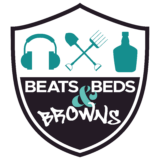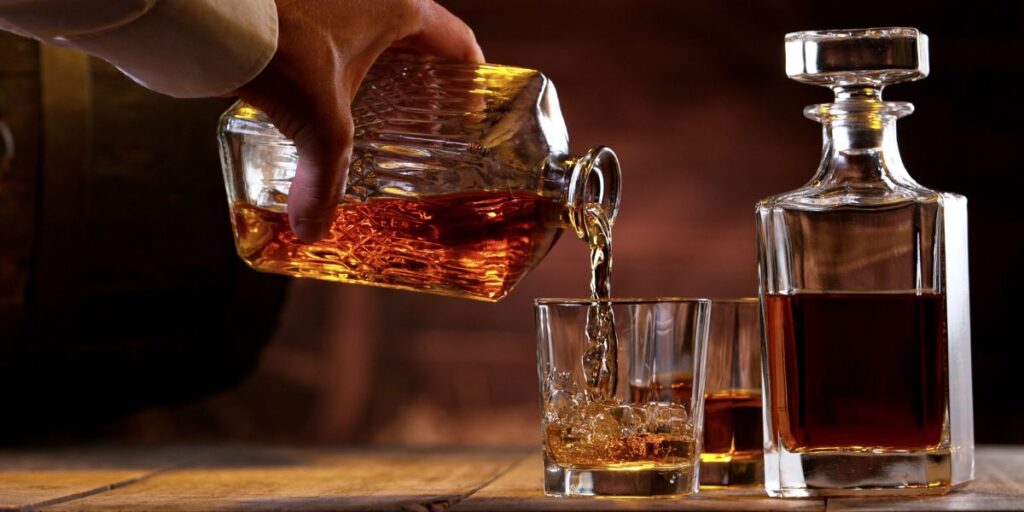Bourbon vs whiskey—is there a difference between the two spirits? Yes, bourbon and whiskey are not the exact same. All bourbon is whiskey, but not all whiskey is bourbon, just like all tortoises are turtles, but not all turtles are tortoises. (We cannot confirm whether turtles would prefer bourbon over whiskey, that’s a subject for another day.)
If you’re all about that whiskey life, read on, you’ll walk away with some great conversation starters for your fellow whiskey fans.
History
‘Whiskey’ comes from the Gaelic ‘uisge beatha’, or ‘usquebaugh’, which means ‘water of life’. Whiskey is mentioned in historical documents from Ireland as early as 1405 AD. By the 16th century it was being drunk by many, including King James IV. When colonists from the British Isles sailed to America in the early 17th century, they brought their whiskey distilling knowledge with them.
Whiskey was very popular in America, and in the Revolutionary War, whiskey could be used as currency. During the 18th century whiskey was taxed, which led to the Whiskey Rebellion (apparently Americans really love their freedom and their whiskey!). Within the first few years of the 19th century the tax was repealed.
Americans were open to experimentation with their mash ingredients, and tried new combinations that included corn, wheat, and rye. This experimentation is what created bourbon.
Bourbon is a unique American variation of whiskey and was recognized by Congress in 1964 as “a distinctive product of the United States.” Bourbon was developed in the late 18th century and contains a larger amount of corn in the mash bill (at least 51 percent). It’s named for Bourbon County, Kentucky. Not all bourbon has to come from Bourbon County to be considered authentic.
Whiskey and bourbon both have a notable place in America’s history, both in connecting us to those who built our country and creating something new to share with the rest of the world.
Preparation
Whiskey is distilled from a combination of fermented mash of grains (for example, corn, rye, barley, oats, and more), and aged in wooden barrels (typically made from oak). To be counted as a whiskey, the grain must be distilled at 190 proof—95 percent alcohol by volume (ABV)—stored in barrels, and bottled at no less than 80 proof (40 percent ABV).
There’s a large variety of whiskeys, and different countries produce distinctive flavors and types of whiskey. The differences will show up in flavor, color, and smell.
Bourbon contains a mash bill that must be at least 51 percent corn and must be distilled at no more than 160 proof (80 percent ABV), added to the barrel at no more than 125 proof (62.5 percent ABV), and bottled at no less than 80 proof (40 percent ABV). Bourbon is aged in charred, new oak barrels, adding a unique bourbon flavor. These barrels cannot be reused for bourbon but can be recycled for whiskey. The finished product contains no additives except for water. All bourbon must be made in the US.
Difference in flavor and smell
Whiskey has a wide range of taste, it can be light and smooth (Irish whiskey is known for this), or malty and earthy (something you’ll find in Scotch whisky). And yes, the Scotch and Canadians spell it ‘whisky’, while the Irish and Americans spell it ‘whiskey’. Who knew you’d be getting a history, food, and spelling lesson all in one article?
Whiskey can range in color from light gold to darker brown, with notable smells of spice, smokiness, or even floral scents. The color and smell of whiskey will vary depending on the type and origin just like the flavor.
Bourbon is sweeter and richer in flavor than whiskey since it’s made from a larger amount of corn. You can smell delicious hints of vanilla, caramel, oak, brown sugar, spice, and fruit. Bourbon is a rich amber color that grows darker every year it’s aged, making it just as pretty to look at as it is pleasant to drink.
Bourbon and whiskey are closely related, but you will notice a difference if you try to substitute one for the other (especially in recipes). Both spirits have a rich history and offer something different. Bourbon wouldn’t exist without whiskey, but bourbon is a uniquely American variety of whiskey that we share with the world.

